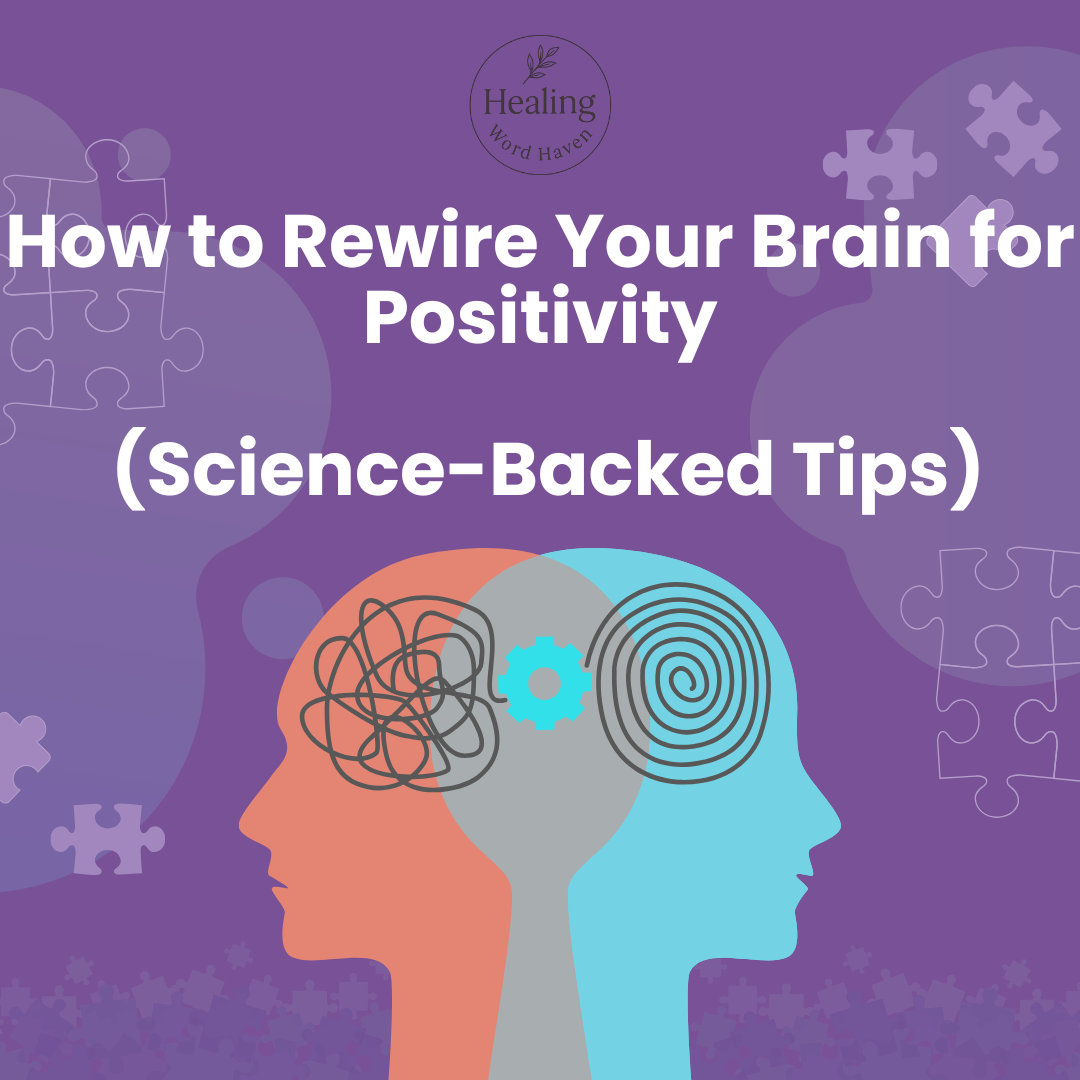Stuck in negativity? Discover 7 neuroscience-backed strategies to rewire your brain for lasting positivity.
Do you ever feel like your brain is hardwired for negativity? You’re not alone. Our brains have a "negativity bias"—they’re literally designed to focus on threats and problems. But here’s the good news: you can rewire your brain for positivity.
Science proves that neuroplasticity (your brain’s ability to change) allows you to shift your mindset—if you use the right tools. In this post, you’ll learn 7 research-backed techniques to train your brain for optimism, resilience, and joy.
👉 Want the full step-by-step guide? Download our free e-book "7 Practical Tips to Achieve a Positive Mindset" here!
1. Practice "Gratitude Mapping" (Not Just Journaling)
A Harvard study found gratitude rewires the brain’s reward system, boosting serotonin (the "happiness chemical").
How to Do It:
- Instead of listing generic "I’m grateful for family," get specific:
- "I’m grateful my coworker made me coffee today—it made me feel valued."
- Visualize the moment for 15 seconds to cement it in your brain.
2. Use the "5:1 Positivity Ratio"
Psychologist Barbara Fredrickson found you need 5 positive thoughts to counteract 1 negative one to thrive.
How to Do It:
- When a negative thought arises ("I’ll never get promoted"), counter it with 5 positives:
- "I’m a hard worker."
- "My boss praised my last project."
- "I’m gaining new skills."
- "I’ve overcome challenges before."
- "I have a backup plan."
3. Try "Neurobics" (Brain Workouts for Positivity)
Neurobics (like brushing your teeth with your non-dominant hand) create new neural pathways.
Positivity Hack:
- Rewire your brain daily with:
- Smiling for 60 seconds (even if forced—it tricks your brain into releasing dopamine).
- Labeling emotions ("I feel anxious, but it’s temporary") to reduce amygdala reactivity.
4. Master the "Savoring" Technique
UC Berkeley research shows savoring positive moments extends their emotional impact.
How to Do It:
- When something good happens (e.g., a friend compliments you):
- Pause and soak it in.
- Say aloud: "This is awesome. I want to remember this."
- Share it with someone (doubles the positivity).
5. Adopt a "Growth Mindset" Phrase
Carol Dweck’s research proves mindset shifts alter brain structure.
Script to Use:
- Replace "I’m bad at this" with:
- "I’m not good at this yet—but I’m improving every day."
6. Reduce "Doomscrolling" (It’s Shrinking Your Brain)
A 2025 study linked excessive negative news consumption to reduced gray matter.
Fix:
- Set a 5-minute timer for news/social media.
- Replace with uplifting content (e.g., success stories).
7. Harness "Priming" Before Bed
Your brain processes memories overnight. Priming with positivity improves recall.
Nightly Routine:
- Write down 3 wins from your day (no matter how small).
- Visualize one going even better tomorrow.
Your Brain is Waiting to Change
Negativity isn’t your default—it’s just a habit. By practicing these 7 science-backed strategies, you’ll
reshape your brain for optimism.
Ready to go deeper? Download our free e-book "7 Practical Tips to Achieve a Positive Mindset" for actionable exercises, templates, and bonus neuroscientist insights!

